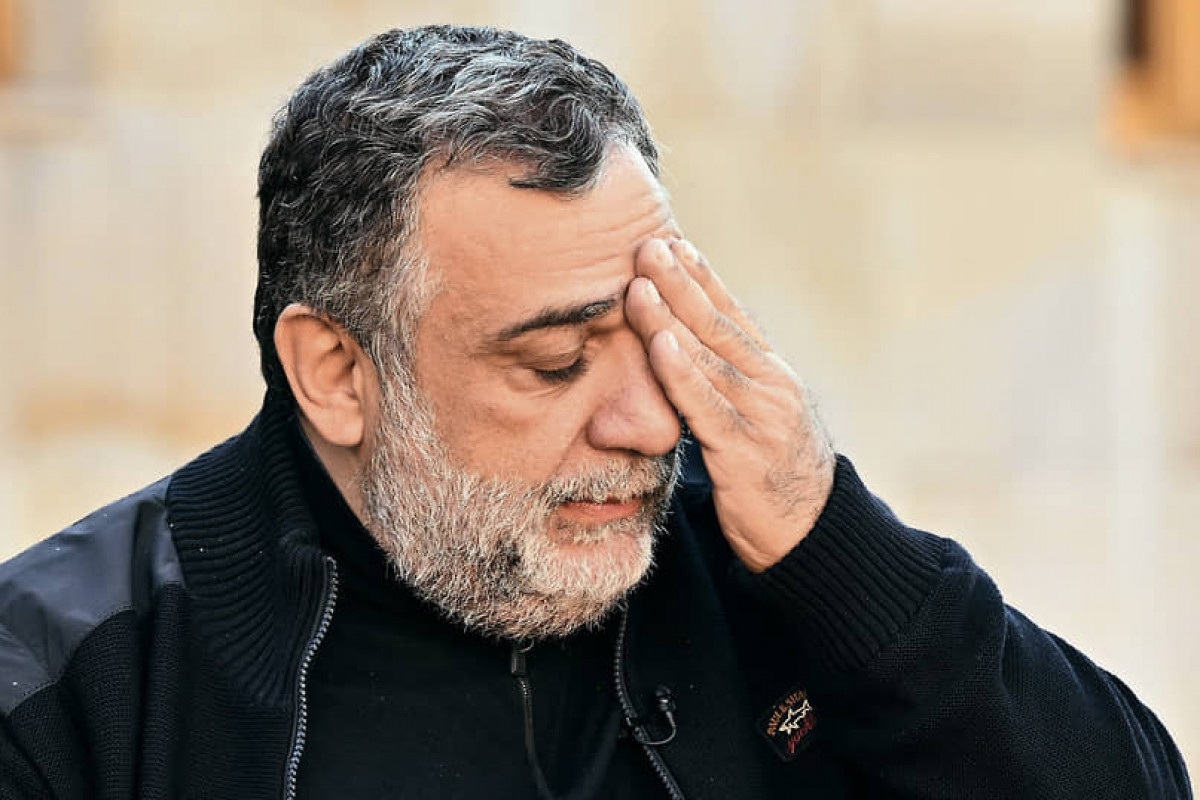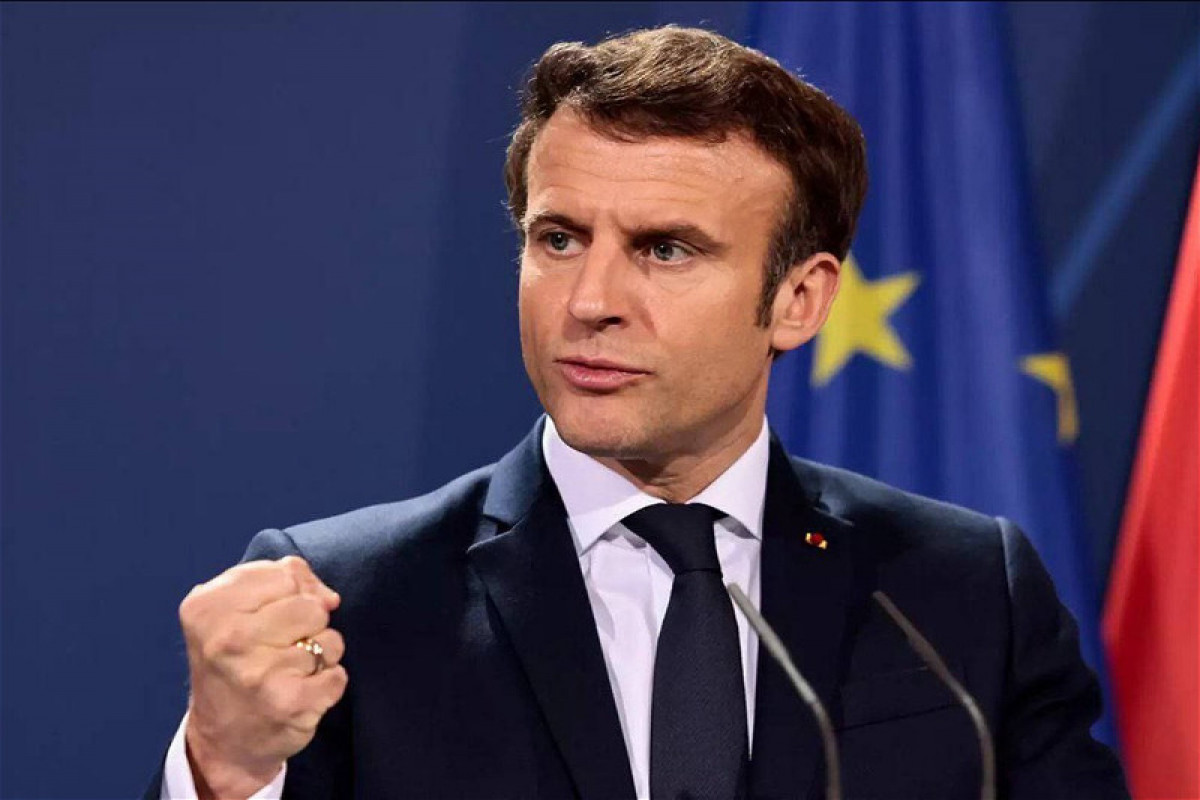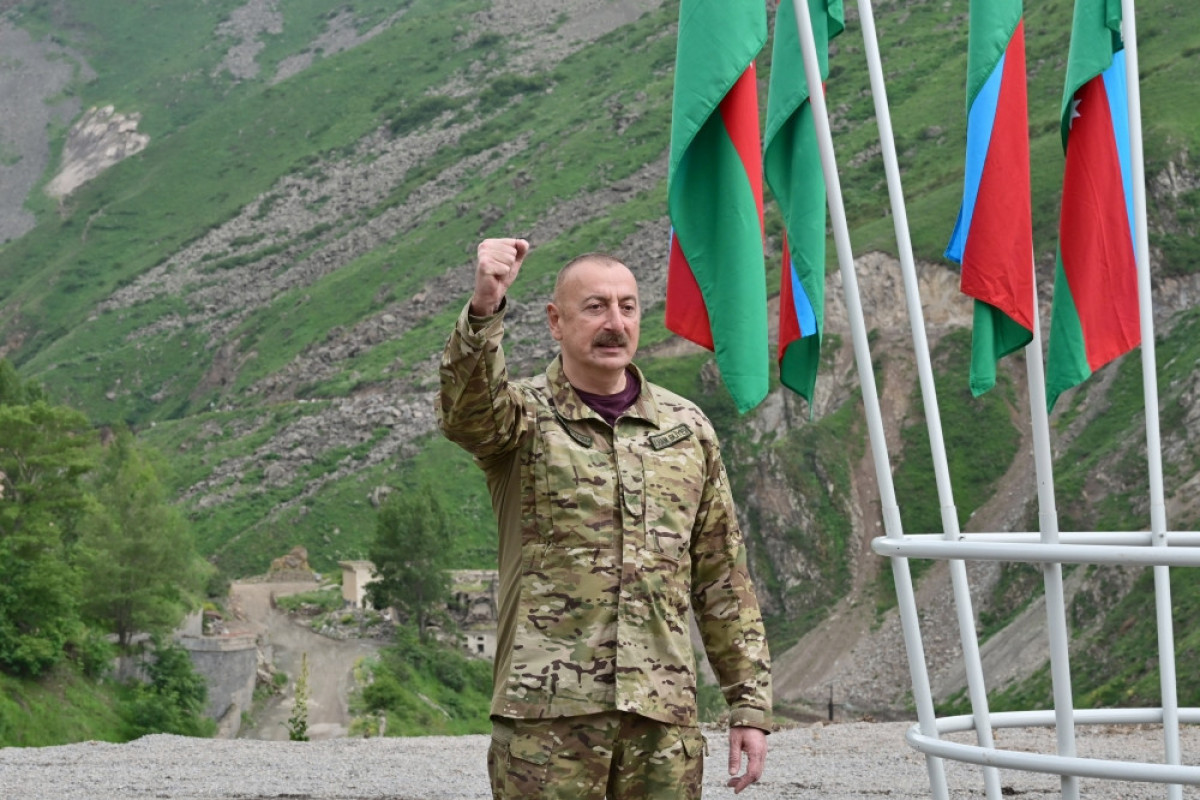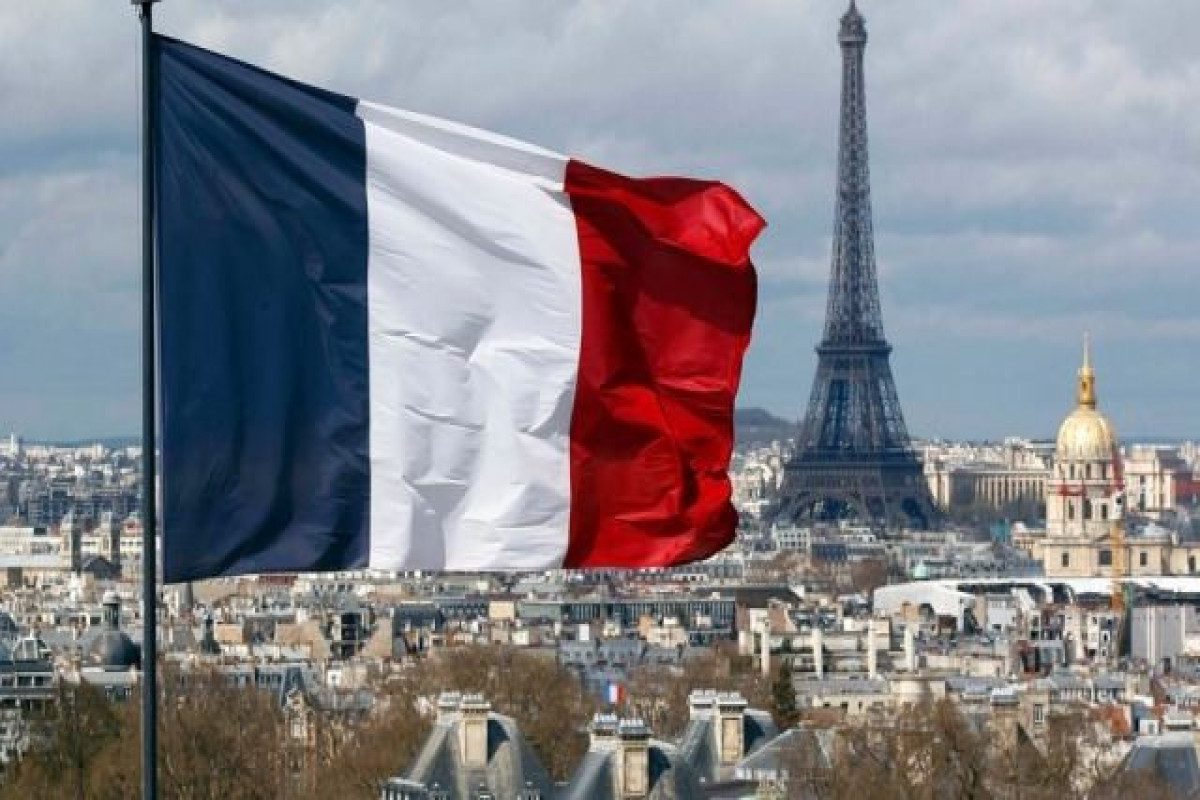"The Golan Heights should be put on a back burner until the situation in Syria will stabilize, and peace will prevail," the Ambassador of Israel to Azerbaijan, Dan Stav said in an interview to ONA.
- Binyamin Netanyahu said that he would extend Israel’s sovereignty over the West Bank if re-elected. Isn’t it against the two-state solution principle?
- What I think is that we have to wait and see the guidelines of the newly established government. As you know, the elections were held in Israel a while ago, and now, the effort in our democratic system is to establish a coalition government. As known, the big parties were able to win the absolute majority by their own force. So, as long as there is no government, I would not go into speculations about what might be the guidelines of the next government. But certainly, Israel has been committed and, it is not only during Prime Minister Netanyahu’s term but also in the future, to a peaceful resolution of the conflict. We have been doing all our efforts with our neighbors, and in two cases, we were successful in establishing peace agreements with the two of our neighbors, which means that wherever Israel sees an opportunity for peace, and there is a willingness from the other side, peace will prevail.
- U.S. President Donald Trump’s statements have made the Middle East the center of global attention once again. Many experts consider that Trump’s recognition of Israel’s sovereignty over the Golan Heights will lead to an increase of tension in the Middle East.
During the six-year war, Israel seized the Golan Heights as a war trophy and means to defend itself. However, now, Israel is a strong state. Does the country still need to keep those occupied territories?
- Israel captured the Golan Heights in the war of self-defense in 1967 as it was under severe threat; it was directed against its very existence. Israel has been trying, as I mentioned before to come to a peaceful resolution of the conflict with all its neighbors. However, the policies conducted by Syria made it unrealistic to do it. We should consider the recent developments in Syria. I mean the horror that we have been seeing in Syria since 2011, the brutal regime of Asad, the massacre of innocent civilians, innocent Syrian civilians, the involvement of the Iranian regime and its terrorist outfits in the war in Syria, the involvement of the terror organization Hezbollah there, the fight against the Daesh, the involvement of international forces there. I think the issue of the Golan Heights should be put on a back burner until the situation in Syria will stabilize, and peace will prevail there.
- Does it mean that if the conflict in Syria is resolved, there is a possibility that the Golan Heights will be returned to Syria?
- I am not familiar with the word “if” in history. Negotiations between Israel and Syria may resume in the future. As I said before, our historical records regarding peace efforts show that Israel is interested in the peaceful resolution of the conflict. Regrettably, the sad reality of the Middle East is that you have to maintain a strong army and a strong economy to support it. It is not our choice, it is a compulsion of the region. However, it does not mean that we think that the military resolution of a conflict is possible. On the contrary, we do strongly believe in the peaceful resolution of all the conflicts, not only the conflicts Israel is involved in, but also all the conflicts in the Middle East.
- Don’t you think that the recognition of the Golan Heights as Israel territory can create some tension in the future as well?
- I think the tension between Israel and Syria came into existence when the Syrians participated in the efforts to liquidate the state of Israel after it declared its independence in 1948. So, I do not think this resolution changes anything in this regard. The situation can be solved once our Arab neighbors, those, who have not yet recognized Israel’s right to exist as a manifestation of the Jewish people’s right to self-determination. As long as this is not acceptable to some countries, I think that peace is not really attainable. The rest emanates from that. Once this right is recognized, the issues regarding borders and some practical arrangements can be attained.
- Both Israel and Palestine consider Jerusalem their capital. The U.S. has acknowledged it as Israel’s capital. What is next taking into account that both sides are not willing to make compromises? What is the formula for peace in the Middle East?
- I think that for decades, the false perception that the resolution of the Israeli-Palestinian conflict will lead to peace in the Middle East proved to be wrong. You see that many conflicts in the Middle East have nothing to do with the Israeli-Palestinian conflict. If you see the war in Yemen or you see what is going on in Syria, you see the involvement of Iran and Iraq, Bahrain and some other countries, the policy of Iran, the expansion of the regime’s policy; it has nothing to do with the Israeli-Palestinian conflict. I think one way to solve it would be through regional recognition of our right to be, the manifestation of the Jewish right to self-defense. Israel is a Jewish state where minorities have the right to enjoy full rights under our independence declaration according to the laws of the state of Israel. When it comes to the Israeli-Palestinian conflict, I think we always believed in direct negotiations, result-oriented negotiations. Despite the fact that Prime Minister Netanyahu has been in power for more than 10 years, very few hours were dedicated by the head of the Palestinian authorities to have discussions with Netanyahu. He always appealed to the international organizations, the international community in order to put pressure on Israel using the automatic majority of the OIC, the non-alignment movement and other organizations that have a very strong bias against Israel. He can get declarations by these organizations, but it will not bring peace inch closer. On the contrary, what it does, and it is not only the declaration by Trump is to keep the side away from direct negotiations. What Mr. Trump really acknowledges is that Israel has the right to Jerusalem. As far as I know, he did not speak about borders, and by the way, many declarations of many states acknowledge East Jerusalem to be the capital of the Palestinian authorities. So, where is there the difference?
There is a dispute between Israel and Palestine about Jerusalem. It is one of the core issues. I think even the core issue should be handled by the parties themselves in order to find a solution. I believe it can be done if both sides approach the issue bonafide.
I believe that the only way to solve the conflict is by peaceful means. The only way to solve the conflict by peaceful means is through direct negotiations between the sides. There is no alternative for that. During such negotiations, maybe, the sides will find the stronger desire to find a compromise, to find a creative solution, because the price at stake is peace and putting an end to decades of violence. So, sometimes, they will be willing to do it. Obviously, there is a conducive environment that can assist this process, and here, it is the responsibility of the international community and possibly other Arab states rather than to encourage the Palestinians to adhere to the intransigent policy against Israel and stick to some unrealistic policies, they should come open-minded to these negotiations. At the negotiations table, both sides are equal. Each side has the right to raise whatever issue he thinks is necessary, and this is the right forum to discuss everything. It may be a long process with its own ups and down, this is the only option to achieve peace. I do not see any other alternative.
- The Turkish-Israeli relations deteriorated after the Mavi Marmara ship incident. In the last years, we have noticed some warming in the relations, but the parties still keep on exchanging angry rhetoric towards each other. Will we be able to witness cooperation between the two countries in the future?
- As a matter of policy, Israel has a strong interest in cooperating with all the neighboring countries, including Turkey. In the past, Israel and Turkey had very strong and close relations and in the economic sphere, the cooperation continues. I do not want to comment on the specific comments coming from either side, but I am sure that the Israeli side has a strong interest to improve relations with Turkey, and it is up to the Turkish side to do it. The two countries have common, complementary interests, and cooperation was very good. I think some of the remarks and some of the policies of the Turkish government were not helping these bilateral relations. Before the Mavi Marmara incident, the relations were good. What happened is that after the resolution of this issue Turkey and Israel, which proved that the two countries can come to an agreement on painful issues, again the two sides found themselves in different positions. As I said before, what matters is the desire, at least, from our point of view, to have excellent relations with important countries in the region. We fully understand the importance of Turkey, and we do want to have good relations with this country.
- What is the current status of the bilateral relations between Azerbaijan and Israel?
- Our bilateral relations are excellent. They have been developing shortly after the establishment of the bilateral relations between the countries. These relations are based not only on strong interest but also on the common perception of the danger of instability in the Middle East, the root cause of this instability, and on top of that, is the excellent relations that are the result of the strong bonds from the time memorial between the Jewish community and Azerbaijan brothers.
- Azerbaijan and Israel enjoy good bilateral relations and cooperation in the field of energy. There is a big potential in this field between the two countries. Opinions are being voiced regarding Israel joining the pipelines initiated by Azerbaijan. Are any concrete steps being taken in this regard?
- I think it is a very interesting option for Israel. I know that there were discussions about it for a number of years now. We do understand the importance of the project of the diversification of energy supplies to Europe. Like Azerbaijan, we strongly consider the European Union a very lucrative market, and we will be very happy to export a part of our gas to the European Union. How to do it? There are a number of options – through a liquefied platform or to do it through Greece or to do it through TANAP. Discussions in Israel are done in order to determine what will be the best option. It is not an easy decision. It is a strategic decision. We fully understand the advantages of joining TANAP, and certainly, one of the reasons is because it will also strengthen the cooperation between Azerbaijan and Israel.
- Recently, the first official visit between Azerbaijani President Ilham Aliyev and Armenian Prime Minister Nikol Pashinyan has been held. How do you think the talks can contribute to the peaceful resolution of the conflict?
- I think the discussions between President Aliyev and Prime Minister Pashinyan were very important and are still important. Both sides show that they are committed to a certain peace process. The position of Israel is very clear about it. Based on our own experience in the Middle East, we strongly believe that the only possible resolution of the conflict not only in the Middle East, the Caucasus or anywhere else is through peaceful negotiations, result-oriented negotiations that both sides will be able to come to a certain agreement how to solve this process with the help of the international community. Both Armenia and Azerbaijan have agreed to have the co-chairs as the only international organization dealing with the negotiations. We are very glad to see that the efforts of the co-chairs end up with meetings not only between the President and the Prime Minister but also continuous meetings between Ministers of Foreign Affairs of Armenia and Azerbaijan. We sincerely hope that this meeting will lead to result-oriented negotiations that will lead to the peaceful resolution of the conflict. In this regard, like many international stakeholders, we wish to see strong and prosperous Azerbaijan that enjoys peace with all its neighbors, including Armenia. However, it is the prerogative of Azerbaijan and Armenia to decide to solve the conflict.
- The Azerbaijani and Jewish people have always coexisted in harmony and peace in the territory of Azerbaijan. Do you think it can be an example for other nations and countries? Why can’t other countries and nations follow this example?
- Multiculturalism and interreligious harmony in Azerbaijan are a wonderful example for the world to follow. It is very rare that a country that is located at the strategic crossroads and suffered so many wars and invasions and faces so many challenges was able to maintain interreligious harmony between most of its components. Jews indeed were a part of this mosaic of different cultures and religions. For us in Israel, Azerbaijan serves as a positive example, model that is in contrast in what we have seen in the Middle East rather than hatred, violence, total disrespect to others, even within Islam, like Sunni and Shia in Syria, Iran, Iraq, Bahrain, Yemen or interreligious affairs, harassment of Christians, a prosecution of other minorities. We see that in Azerbaijan, it does not happen. Azerbaijan has always welcomed minorities whether they are Molocans, whether they are Sobotniks, whether they are Jews that fled from Russia during the First World War. They were always accepted here, always respected. Their share was to contribute to the society that hosted them so generously, so peacefully. They contributed whatever they could, and I think this bond is really exemplary and should be a model for the rest of the world.
- The first-ever kosher restaurant is scheduled to be opened in Baku this year. What kind of programmes or events are implemented to familiarize the Azerbaijani people, who are mainly of Islamic belief, with the Jewish culture?
- I was very pleasantly surprised that many of my Azerbaijani colleagues are very knowledgeable about kosher and Judaism because Jews are a part of this society. This restaurant is going to be officially opened soon after the Passover. It is going to cater the needs of tourists because there is a growing number of tourists from Israel. Many of them have very strict requirements regarding kosher food. I think this restaurant can be a peaceful solution. I wish to take this opportunity to wish success to the owners of this restaurant that it will really work well. The potential is very much there.
- Mr. Ambassador, your mission ends in summer. How do you evaluate your 4 years in Azerbaijan? What kind of contribution have you made to the development of bilateral relations between Azerbaijan and Israel? What do you like the most about Azerbaijan? Are you planning to visit Azerbaijan even after your mission is over?
- I will be very delighted to come back here again. I had the privilege of visiting almost all the parts of Azerbaijan, and I visited many of them six times or even more because I like it. In fact, I do not see my life totally disconnected from Azerbaijan. I really want to come, and we have direct flights – three hours and a half. I strongly recommend Azerbaijanis to explore Israel the way that I explored Azerbaijan. Regarding my contributions, I think I would rather hear about it from others and not from myself. As I have a number of months still left, I would do summaries a bit later, but I think I can point out a number of highlights of my term here. One of them is the historical visit of Prime Minister Netanyahu here in December of 2016, and the other one is the visit of Minister of Defense Liberman TO Azerbaijan. A very important issue I have been promoting was the signing of the MoU about the establishment of a joint intergovernmental commission. It was signed during Prime Minister Netanyahu’s visit, and the first meeting of this commission was held in Israel in May of 2018 when Minister of Taxes Mikayil Jabbarov led a very distinguished Azerbaijani delegation for these talks. This is the highlight in the sense that we are trying to strengthen the civilian anchor of the relations, and this commission is an opportunity to set an agenda to promote the issues that are of mutual interest for both sides, to identify the obstacles and try to find solutions to remove them from the way and open a wide door for the private sector to follow through and expand cooperation and interaction between the two sides.






